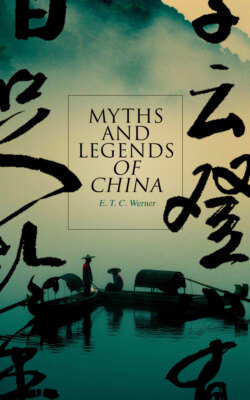Читать книгу Myths and Legends of China - E. T. C. Werner - Страница 48
На сайте Литреса книга снята с продажи.
Stimulus Necessary
ОглавлениеThe next condition is that there must be a stimulus. It is not ideas, but feelings, which govern the world, and in the history of mythology where feeling is absent we find either weak imitation or repetition of the myths of other peoples (though this must not be confused with certain elements which seem to be common to the myths of all races), or concoction, contamination, or "genealogical tree-making," or myths originated by "leisurely, peaceful tradition" and lacking the essential qualities which appeal to the human soul and make their possessors very careful to preserve them among their most loved and valued treasures. But, on the other hand, where feeling is stirred, where the requisite stimulus exists, where the people are in great danger, or allured by the prize of some breathless adventure, the contact produces the spark of divine poetry, the myths are full of artistic, philosophic, and religious suggestiveness, and have abiding significance and charm. They are the children, the poetic fruit, of great labour and serious struggles, revealing the most fundamental forces, hopes, and cravings of the human soul. Nations highly strung, undergoing strenuous emotion, intensely energized by constant conflict with other nations, have their imagination stimulated to exceptional poetic creativeness. The background of the Danaïds is Egyptian, not Greek, but it was the danger in which the Greeks were placed in their wars with the sons of the land of the Pharaohs that stimulated the Greek imagination to the creation of that great myth.
This explains why so many of the greatest myths have their staging, not in the country itself whose treasured possessions they are, but where that country is 'playing the great game,' is carrying on wars decisive of far-reaching national events, which arouse to the greatest pitch of excitement the feelings both of the combatants and of those who are watching them from their homes. It is by such great events, not by the romance-writer in his peaceful study, that mythology, like literature, is "incisively determined." Imagination, we saw, goes pari passu with intellectual progress, and intellectual progress, in early times, is furthered not so much by the mere contact as by the actual conflict of nations. And we see also that myths may, and very frequently do, have a character quite different from that of the nation to which they appertain, for environment plays a most important part both in their inception and subsequent growth—a truth too obvious to need detailed elaboration.
